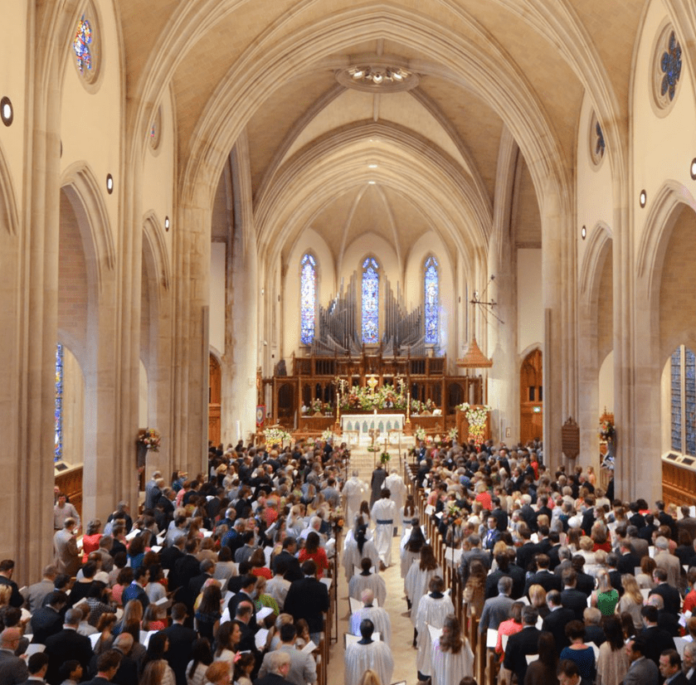Many people have been looking for spiritual communities that share their ideals in recent years, emphasizing social justice, inclusivity, and progressive religious interpretations. Progressive Churches Near Me, which frequently welcome people with a variety of faiths and backgrounds, have become safe havens for those looking for a more accepting spiritual approach. This guide will assist you in understanding Progressive Churches Near Me in your area, their guiding principles, and how to locate one that aligns with your values if you’re looking for one.
Also Read Article: Bryan Randall Net Worth: Exploring His Net Worth and Career Journey
Table of Contents
A Progressive Church: What Is It?
Progressive Churches Near Me which are frequently based in Christian traditions, accept a reading of the Bible that places a premium on social justice, inclusivity, and a dedication to tackling modern-day problems. The values of compassion, equality, and respect for every person—regardless of origin, sexual orientation, or beliefs—are frequently emphasized in these congregations. In order to spread a message that is in line with larger social movements, progressive churches frequently support causes like economic justice, racial equality, LGBTQ+ rights, and environmental stewardship.
- A distinguishing: feature of progressive churches is their willingness to engage in theological discourse and challenge established beliefs. They often encourage members to delve deeply into their faith and are open to changing their practices and beliefs in light of evolving knowledge and societal circumstances. The progressive churches are distinguished from more traditional or conservative congregations by their emphasis on critical thinking and dialogue.
- Fundamental Ideas of Progressive Churches: Inclusion The idea that everyone is welcome, regardless of color, gender, sexual orientation, or socioeconomic background, is the foundation of progressive churches. Because of this dedication to tolerance, people can express their faith in a genuine way and feel a feeling of community and connection.
- Social Justice: Progressive churches place a high value on community service and social justice, frequently taking part in campaigns to combat structural injustices. Numerous churches run outreach initiatives, donate to regional nonprofits, and take part in campaigns to benefit underrepresented groups.
- Environmental Stewardship: Since caring for the environment is so important, progressive churches frequently place a strong emphasis on environmental sustainability. Numerous religious communities implement measures to lessen their environmental impact and teach their members the value of protecting the environment.
- Theological Openness: Progressive Churches Near Me support critical reading and theological investigation of the Bible. This transparency enables members of the congregation to grapple with difficult issues and form their own understanding of their faith.
- Community Engagement: Progressive churches actively participate in local groups and efforts to effect positive change because they view themselves as a part of a larger community. Their influence on social issues is increased and collaboration is encouraged by this relationship.
How to Locate Local Progressive Churches
Try taking the following actions if you’re looking for a progressive church that shares your beliefs:
- Internet Search: Begin by conducting a quick web search with phrases like “inclusive faith communities in [Progressive Churches Near Me]” or “progressive churches near me.” You can also find congregations that identify as progressive by visiting websites such as the Alliance of Baptists or the Progressive Christian Network.
- Community Groups and Social Media: A lot of progressive churches are engaged on social media. By participating in neighborhood forums or groups, you can make connections with people who might suggest churches that share your values.
- Visit Several Congregations: To gain a sense of the community, worship style, and doctrines of various progressive churches, attend services at various locations. By interacting with many congregations, you can discover one that is in line with your spiritual path.
- Pose inquiries: Never be afraid to ask questions directly to churches about any concerns you may have regarding their doctrine, rituals, and role in the community. A large number of progressive churches are willing to converse and greet visitors.
- Search for Events and Programs: A lot of Progressive Churches Near Me hold social justice, spirituality, and community service-related events, workshops, and discussion groups. Engaging in these events can bring you a better understanding of the goals and principles of the church.
Joining a Progressive Church Has Its Advantages
Being a part of a Progressive Churches Near Me has many advantages:
- Friendly Community: Joining a progressive church gives you the opportunity to meet people who share your beliefs and dedication to social justice.
- Possibilities for Growth: Progressive churches assist and encourage spiritual and personal development by offering tools and guidance.
- Meaningful Engagement: A lot of progressive churches place a strong emphasis on getting involved in the community. This gives you the chance to change the world and support causes that are important to you.
- Safe Space for Exploration: You can expand your understanding of faith in a progressive church by being in an atmosphere that welcomes questioning and exploration.
Conclusion
Progressive Churches Near Me in your area can offer a warm and inviting setting to anyone looking for a religious community that shares their beliefs. Focusing on social justice, inclusivity, and theological transparency, these churches provide chances for personal development and purposeful interaction with society. You can discover a community that not only supports your spiritual development but also gives you the tools you need to effect positive change in your neighborhood and beyond by looking into the progressive church scene. Progressive Churches Near Me welcome you to find a path of love, acceptance, and social responsibility—whether you’ve been a believer your entire life or are just beginning to explore faith.





